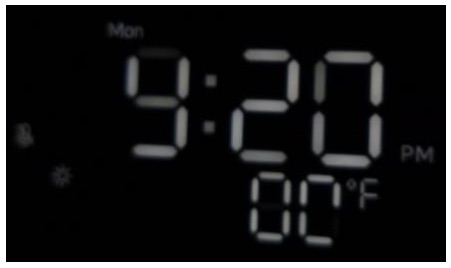Lenovo Smart Clock Class Action Claims LED Screen Burns Out Prematurely
Harmon v. Lenovo (United States) Inc.
Filed: May 15, 2023 ◆§ 3:23-cv-01643
A class action alleges Lenovo’s smart clock is defective in that the LED display lights consistently burn out prematurely and fail to adjust to changes in ambient light.
A proposed class action alleges Lenovo’s smart clock is defective in that the LED lights of its “big & bold display” consistently burn out prematurely and fail to adjust to changes in ambient light.
Want to stay in the loop on class actions that matter to you? Sign up for ClassAction.org’s free weekly newsletter here.
 The 11-page complaint says that the WiFi-connected product, whose four-inch LED display Lenovo describes as “big & bold … [so] you can check out the time from across the room,” is plagued by issues “likely attributable to manufacturing defects and quality-control failures.” As a result of the Lenovo display-dimming problems, consumers are unable to check the time and weather reliably and in the manner advertised, the case relays.
The 11-page complaint says that the WiFi-connected product, whose four-inch LED display Lenovo describes as “big & bold … [so] you can check out the time from across the room,” is plagued by issues “likely attributable to manufacturing defects and quality-control failures.” As a result of the Lenovo display-dimming problems, consumers are unable to check the time and weather reliably and in the manner advertised, the case relays.
Per the suit, many consumers have reported that the apparent defect causes the screen to dim “when the amount of ambient light decreases.” This means that the Lenovo smart clock is not “a great night-time companion” as advertised given that consumers cannot check what time it is with lower ambient light levels, the filing contends.
The case claims some users have attempted various fixes on their own, including rebooting and resetting the device, applying light pressure to the edges and face of the display and controlling/disabling the auto-dim function, but have been unsuccessful. According to the complaint, the Lenovo smart clock problems are most likely caused by a defect.

“The circuits in LED displays contain numerous emitters, capacitors, and/or semiconductors, and where one of these components is faulty or where quality control is lacking, the result will be a display failure for the user because of overheating, among other things.
Additionally, the use of incompatible and defective LED drivers causes improper power distribution, making it more likely for the screen to suffer from display failures.”
Many have reported that their Lenovo smart clock’s display began to fade after the product had been used for less than a year, “point[ing] to a combination of the above factors as the cause,” the lawsuit suggests. Per the case, Lenovo’s use of low-quality materials makes it “more likely and even probable” that the clock’s display will fail within a short time after purchase.
Lastly, the suit says Lenovo has consistently denied consumers’ warranty claims to repair their smart clocks, even during the period in which it purports to cover repairs. The company, in denying warranty coverage, blames the display failure on “consumer misuse,” the case relays.
Per the suit, the Lenovo smart clock is worth “materially less” than its value as represented by the company, and consumers would not have bought the device, or would have paid less for it, had they known its LED display would fade.
The lawsuit looks to cover consumers in Illinois, Mississippi, Utah, Wyoming, Idaho, West Virginia, Louisiana and Kansas who bought a Lenovo smart clock during the applicable statute of limitations period.
Get class action lawsuit news sent to your inbox – sign up for ClassAction.org’s free weekly newsletter here.
Video Game Addiction Lawsuits
If your child suffers from video game addiction — including Fortnite addiction or Roblox addiction — you may be able to take legal action. Gamers 18 to 22 may also qualify.
Learn more:Video Game Addiction Lawsuit
Depo-Provera Lawsuits
Anyone who received Depo-Provera or Depo-Provera SubQ injections and has been diagnosed with meningioma, a type of brain tumor, may be able to take legal action.
Read more: Depo-Provera Lawsuit
How Do I Join a Class Action Lawsuit?
Did you know there's usually nothing you need to do to join, sign up for, or add your name to new class action lawsuits when they're initially filed?
Read more here: How Do I Join a Class Action Lawsuit?
Stay Current
Sign Up For
Our Newsletter
New cases and investigations, settlement deadlines, and news straight to your inbox.
Before commenting, please review our comment policy.